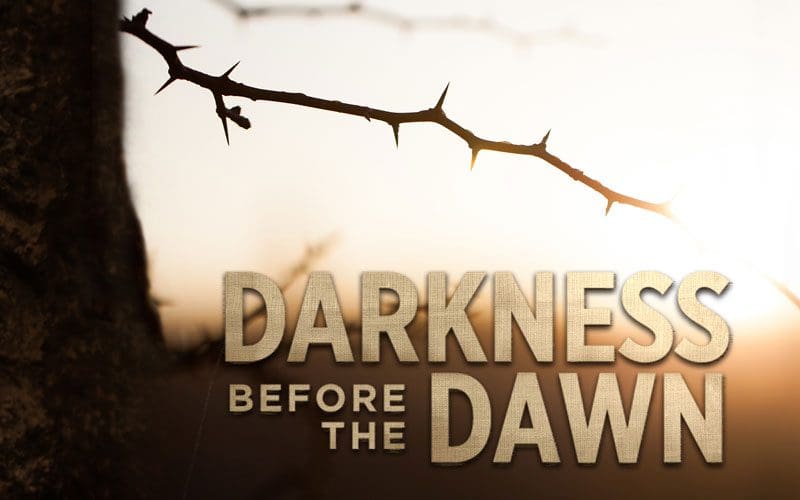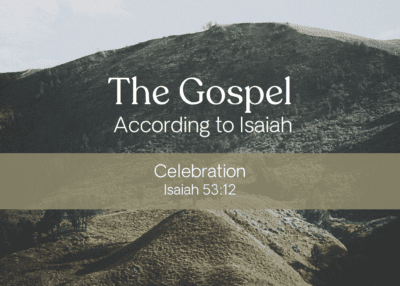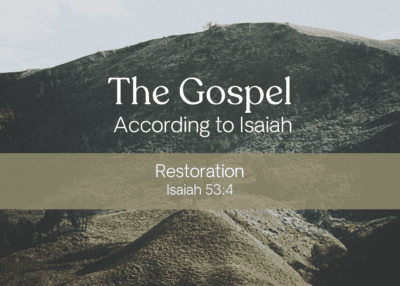Thanks be to God who gives us the victory through our Lord Jesus Christ. 1 Corinthians 15:57
Happy Easter everyone. I’m so glad that you are here to share in our celebration of the resurrection of our Lord Jesus Christ. What we celebrate today is unique. It is without parallel. There is nothing else like it, nor has there ever been or ever will be in the history of the world. Other religions offer a code of conduct, a path of progress. We proclaim a living Savior.
Martyn Lloyd-Jones explained the difference with this picture: In the ancient world when a king went to war, he would lead out his army to battle. If the king prevailed, he would send back heralds to the city who would announce the good news of the king’s triumph. They would say to the people who lived under the king’s rule, “There is good news! Your king has won a great victory. You can live in freedom, peace, and joy because your king has triumphed.”
But if the battle was lost, the king would send back military advisers. Their message would be very different, because the enemy would be there soon. They would say, “Your king has been defeated in battle. The enemy will soon be upon you. So man the ramparts. You are going to have to fight for your lives, because it all comes down to you.”
Here’s the point: The religions of the world all give some form of the military adviser’s message – here is what you are going to have to do. “Here is what you must do: If you are to have peace and freedom and hope and joy, it’s all down to you! Here is the life you have to live, the disciplines you have to fulfill, the good that you have to accomplish.
The gospel is unique because it heralds the good news of what Jesus Christ has done. The good news of the gospel says, “Our king has triumphed over sin and over death and over hell. Therefore there is peace, freedom, hope, and joy for all who live under his rule!” Religion tells you what you must do. The gospel tells you what Jesus Christ has done.
When Jesus said “It is finished,” he did not mean that some of what it took to save us was done through the Old Testament law and sacrifices and Jesus did the rest. And he did not mean that some of what it took to save us was done on the cross and we have to do the rest.
When Jesus said, “It is finished,” he was saying, “Everything that was needed for you to be reconciled to God and brought into life everlasting was fully accomplished in my death and resurrection.” All that remains for us is to receive what he has accomplished and now offers as a gift. We do that by turning to him, believing in him, embracing him as our Savior, and submitting to him as our Lord.
Today I want to draw your attention to the marvelous words of 1 Corinthians 15 in which we discover two things that are true for every believer. First, Jesus Christ has changed death forever through his resurrection. Second, Jesus Christ has changed life forever through his resurrection.
How Christ Changes Death
Death has a sting
The sting of death is sin, and the power of sin is the law (1 Cor. 15:56).
We live at a time when a growing number of people have come to the conclusion that death as nothing more than the ending of life. We are hearing increasing calls for physician-assisted suicide. The idea is that if a person feels that their life is no longer worth living they should have the right to end it. And the assumption behind it is that death is simply the ending of life, and therefore, it is a friend to be welcomed.
But the Bible says something very different. We read in these verses that death has a sting. Verse 26 tells us that death is an enemy, not a friend. More than that, it is the last enemy, the greatest enemy we will ever face.
So the Bible speaks into our culture today when it says, “Don’t make the mistake of thinking that death is a friend who brings comfort. Death is an enemy with a sting!” The reason that death is an enemy with a sting is that death came into the world by way of a penalty.
God said, “In the day that you eat of it [the fruit of the tree of the knowledge of good and evil from which he had commanded them not to eat] you will surely die” (Gen. 2:17). Death is the direct outcome of sin in the world and sin in our lives. If there had not been sin, there would not have been death.
The ultimate proof that all of us are sinners is that all of us die. “The wages of sin is death” (Rom. 6:23). Whatever good and kind things are said about a person at their funeral, the fact that a funeral is taking place says to us: “By the way, he/she was a sinner as well!” When I die, if you come to my funeral, whatever is said, you will be able to say, “Well, there you have it: Conclusive proof that the pastor was a sinner as well!”
“The sting of death is sin” (15:56). What does that mean? Simply that to go into death and stand before almighty God as a sinner who has failed to keep his law would be the ultimate disaster. And that is the position that all of us would have been in were it not for the fact that Jesus died on the cross for our sin and was raised from the dead.
Jesus has removed the sting
“O death, where is your sting?” (1 Cor. 15:55).
When Jesus died on the cross, he took on himself the sins of all who would believe in him. He drew the sting. He took the sting into himself and all its lethal venom was pumped into him, it was spent on him.
So Christian brother and sister, when you are in Christ, death may seize you but it cannot hold you in its power and sting you. It will not lead to the ultimate disaster of you standing before almighty God as a sinner who has failed to keep his law.
Jesus Christ stood there for you. He faced death with the sting, and that transformed what death will be for you. To be “away from the body” is to be “at home with the Lord.” Death is changed forever for all who are in Jesus Christ!
Jesus has changed the anticipation of death
We know that while we are at home in the body we are away from the Lord… we would rather be away from the body and at home with the Lord (2 Cor. 5:6, 8).
This is why Paul says, we are always of good courage. Without Christ our reality would be living until we die and then facing the fearful judgment of God, but in Christ that is not our position. We know that the sting of death has been drawn. We are no longer slaves to fear because the thing that is most to be feared in death has been removed.
Jesus has changed the experience of death
“I will never leave you nor forsake you” (Heb. 13:5).
Nobody else in all the world can say this to you. God has given this marvelous promise to all of his children, so when the moment of death comes for you, you will not be alone. You will be taken from your friends and from your family. You will be taken from your work and you will be taken from this world.
But you won’t be taken from the Lord Jesus Christ, because he says, “I will never leave you nor forsake you.” You will not be alone. You will be kept, you will be carried through the dark valley, and you will be welcomed on the other side by Jesus Christ himself.
Jesus has changed the outcome of death
“You will die in your sins” (John 8:24).
These may be the most frightening words in all of the Bible. And Jesus said them to people who refused to believe in him. But Jesus changes death for all who believe. You will not die in your sins if you are a believer in the Lord Jesus Christ. Why? Because he took your sins into his death so that you will not take them into yours. If you have trusted yourself to him, you will not die in your sins.
So friends, if any of you are at my funeral, and you find yourself saying, “Well, there you have it: Conclusive proof that the pastor was a sinner as well!” I hope you will also be able to say: “Thank God he has a risen Savior who drew the sting of death for him!” For this is the wonderful truth that we celebrate on this Easter morning.
Christ changed death forever by removing its sting! No wonder Paul says, “Thanks be to God, who gives us the victory through our Lord Jesus Christ” (1 Cor. 15:57).
How Jesus Changes Life
The resurrection will bring stability to your faith
Therefore, my beloved brothers, be steadfast, immovable… (1 Cor. 15:58).
The word ‘therefore’ shows that there is a direct connection between confidence in the resurrection (which is what Paul has been speaking about) and stability (which is his first application). Here’s what this means:
Faith soon flounders if you lose sight of the resurrection
Lose sight of the resurrection and you will be besieged by all kinds of questions. If this life were all that there is, you would soon say, “Is there any point in believing?”
- Lose sight of the resurrection and you will soon find yourself overwhelmed by temptation and by unbelief.
- Lose sight of the resurrection and you will find that the world has you in its clutches.
- Lose sight of the resurrection and you will soon be feeling sorry for yourself. You will find yourself saying, “Life is passing me by,” and you begin to take another path.
You may say that you have faith in Christ, but without confidence in the resurrection you will be miserable.
Faith that rests on a risen Savior will strong, firm, and stable
Here is the sure foundation of faith: Christ is risen! Let this be the settled conviction of your life, and when it is, you will be steadfast and immovable! The resurrection of Jesus brings stability to your faith, whatever you experience in this fallen world, because what Jesus has accomplished in his death and resurrection is the solid rock on which you can depend.
When you can say, “I have a risen Savior. He sits at the right hand of God the Father for me. Nothing in life or in death will ever be able to separate me from his love,” you are building your life on something solid! Get your eyes fixed today on this risen Savior. The resurrection of Jesus will bring stability to your faith.
The resurrection will bring joy to your ministry
Therefore, my beloved brothers, be steadfast, immovable, always abounding in the work of the Lord… (1 Cor. 15:58).
‘Abounding’ speaks of energy, joy, freedom. My grandchildren, the oldest of whom is 5 years old today, are abounding with life. Abounding is the very opposite of tired, jaded, dull, and boring!
Paul describes believers who are “abounding in the work of the Lord.” No reluctance here.
No sense of doing God’s work in order to earn God’s favor. That’s always deadly. They have joy, energy, and freedom in serving the Lord. Here are people who know that they have the smile of God over their life.
Here are people who know that their eternal future is secure. They know that because of the death and resurrection of Jesus it won’t be long before they see the Lord and are welcomed into the life of joyful service for which they were made. And knowing this, they give themselves gladly to the work of the Lord.
Notice they are “always abounding.” It is a lifelong thing. If you come to the settled conviction that Christ is risen from the dead:
- You will give yourself gladly to the work of the Lord when you are young. If you really believe that he is risen from the dead, you won’t be saying, “I’ll get to that in 10 years.”
- You will give yourself gladly to the work of the Lord in your middle years.
- And you will give yourself gladly to the work of the Lord when you are old, always abounding in the work of the Lord.
Those who are cringing and holding yourself back, I challenge you: Have you really ever come to the conclusion that he is the risen Lord? Get your eyes fixed today on this risen Savior. The resurrection of Jesus will bring joy to your ministry.
The resurrection will bring fulfillment to your life
Therefore, my beloved brothers, be steadfast, immovable, always abounding in the work of the Lord, knowing that in the Lord your labor is not in vain (1 Cor. 15:58).
The word ‘labor’ simply means hard work. We are talking here about the accumulated total of all the investments you have ever made, the sweat equity of your whole life, all that you’ve poured yourself into. And to labor in vain means that the effort you extended does not accomplish the objective you intended. Nobody wants to be in that position!
To discover at the end of your life that you had labored in vain would be a horrendous scenario. What would it be like if everything you had given yourself to, everything you had invested yourself in, proved to be in vain, that is, without lasting value?
What Paul says in this chapter is brutally honest: “If Christ has not been raised, then our preaching is in vain and your faith is in vain” (15:14). He does not say, “Even if Christ has not been raised, Christianity is still the best way to live.” He doesn’t say that. What he says, in effect, is: “If Christ is not raised, shut the doors of the church and go home!” That’s what he says. There’s no value in defending a tradition. If there’s no risen Savior, it’s all in vain.
Christian, what would it be like if all your labor was in vain? I spent a few minutes this week meditating on what that would be like for me, and this is what I wrote:
If Christ is not raised, I have wasted my life.
- If Christ is not raised, I have worshipped a King who does not exist.
- If Christ is not raised, I have preached a hope that has no substance.
- If Christ is not raised, my prayers have gone no further than the room I was in.
- If Christ is not raised, my whole life has been wasted in pursuit of fantasy.
Imagine getting to the end of your life and finding out that you had labored in vain! Imagine the pain of discovering that what you extended yourself for and invested yourself in had no lasting value! That would be a complete disaster.
But brother and sisters, Christ is risen, and he is worthy of all our worship!
- Because Christ is risen, there is hope for every person.
- Because Christ is risen, every one of our prayers are heard.
- Because Christ is risen, the highest purpose of all our lives is to live for his glory. That is the most solid thing you can ever do. If you are in Christ, and if you live for Christ, your labor will not be in vain.
But now let me ask this question to the person who is on the fringe of faith. You are familiar with these things. But he is not the Lord of your life. You are the Lord of your own life, and this is your plan going forward. How would it be for you if everything you lived and worked for turned out to have no lasting value? What if your labor was in vain?
Have you considered what it would be for you to discover, when your life is over, that Christ is risen, and that you could have lived a life that was devoted to him? You could have served him. You could have given yourself to his work. You could have worshipped him, you could have walked with him, and you could have loved him.
But you chose a different path. You worked hard, hoping you would build something of lasting value. You lived what you thought was a good life, hoping you would find peace. But then you discovered that Christ is risen, and having lived without him, all your Christ-less labor was in vain.
None of us wants to labor in vain. We are told that if your labor is in the Lord, it will not be in vain. Which raises the question: How can you be in the Lord? Faith is the bond that unites you with Christ so that you become his and he becomes yours. When Christ is yours and you are his, through the bond of faith, your labor will be in the Lord. And when your labor is in the Lord, you have this promise: It will not be in vain.
Our Lord Jesus Christ himself told the story of a merchant who traded pearls. One day he found a pearl like none he had ever seen before. It was a pearl of great price. Seeing its beauty and its value he made a decision: He sold all of the other pearls that he had in order to obtain the pearl of great price – the one of supreme beauty and supreme value.
Jesus Christ is the one pearl of great price. He loved you and gave himself for you. He rose from the dead and offers himself to you. He is able to change death for you and he is able to change life for you.
I invite you to trust him, worship him, love him, and serve him. And then to be steadfast, immovable in your faith, always abounding in the work of the Lord, because you know that, in the Lord, your labor will not be in vain.
[elementor-template id=”128476″]






